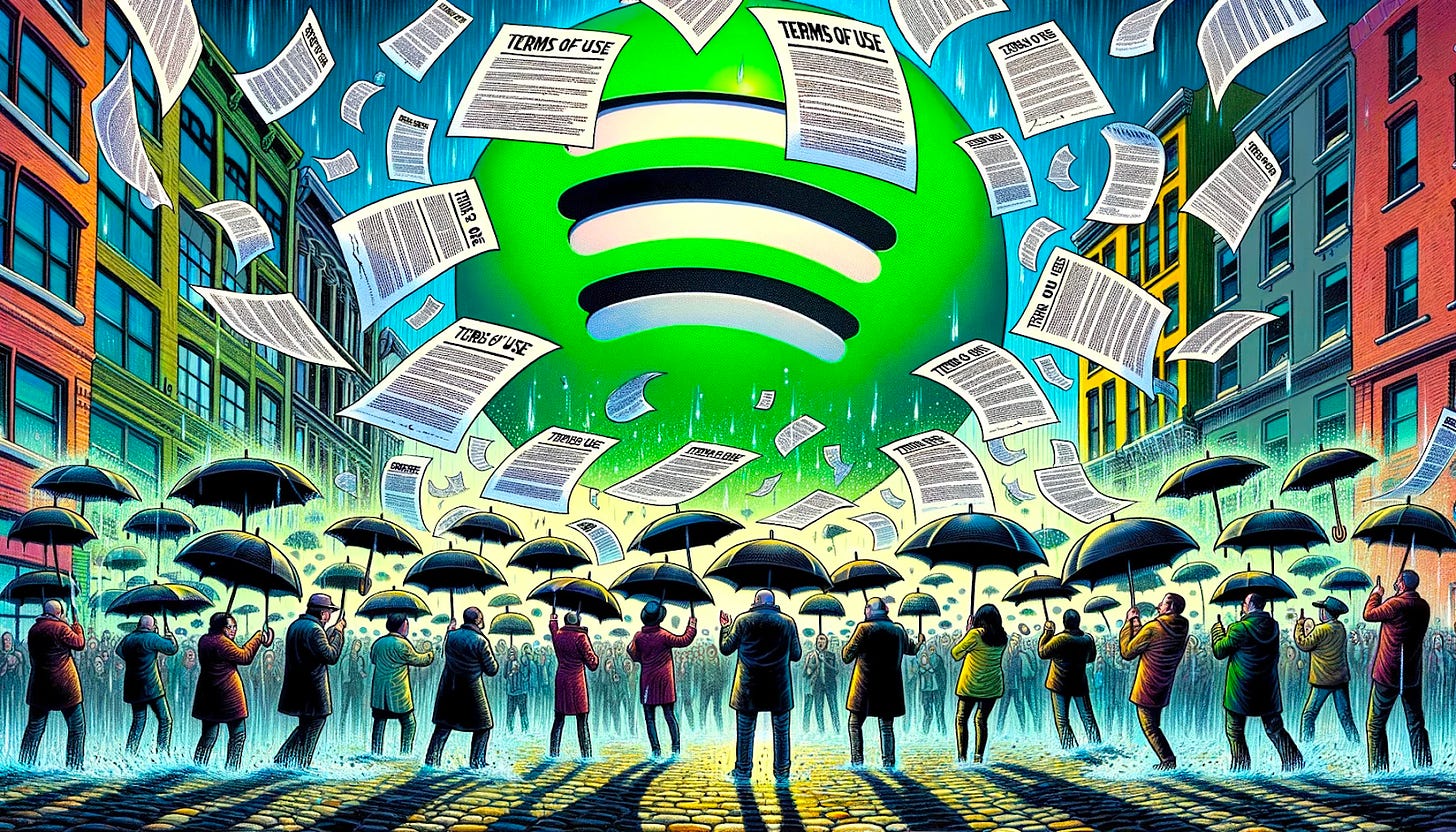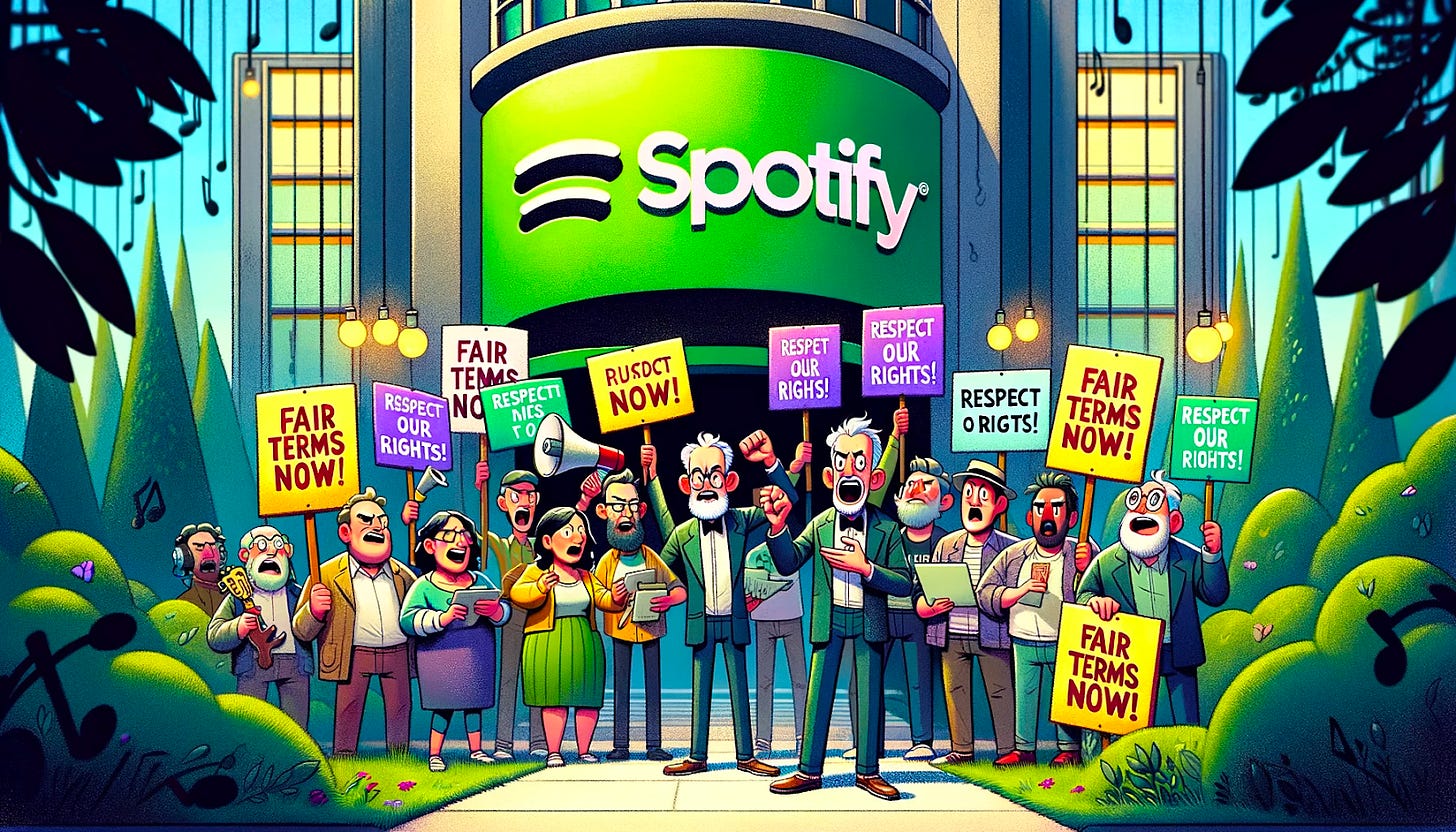Spotify-Owned Findaway Voices' New Terms of Use: Rights Grab or Sloppiness?
Hello Substack!
We are organizers on behalf of the Coalition of Concerned Creators, a collective of writers, musicians, literary agents, and creators advocating for transparency and integrity in the literary industry. After launching this Coalition back in December, on the same day that early joiner and bestselling author Kim Scott penned an op-ed, ‘Will Audiobooks Survive Spotify,’ in The New York Times, we’ve built a following and heard from even more concerned authors, agents, narrators, organizations, and other creators about their perceived threats to the literary industry.
Spoiler: many folks are anxious, unhappy with how big tech companies are compensating valuable work (or, just plainly, taking advantage of their work), and generally concerned about what the future holds for the industry. Easy times these are not. And after what Spotify did to musicians, their entry into the audiobook space feels like the straw that’s breaking the camel’s back for many.
So, we’ve created this substack to act as a resource for navigating the challenges posed by big tech – especially on the current threat that Spotify’s audiobook platform poses to authors.
For this week’s topic, in case you missed it, the Coalition of Concerned Creators, among many other author organizations, recently sounded the alarm over Findaway Voices' new terms of use, causing a bit of a sh** storm among narrators and authors (rightfully so). The new TOU announcement brewed a Twitter storm as authors raged against Findaway Voices, questioning what felt like an audacious rights grab.
The OG Terms of Use said:
“You hereby grant Spotify a non-exclusive, transferable, royalty-free, fully paid, irrevocable, worldwide license to reproduce, make available, perform and display, translate, modify, create derivative works from, distribute, and otherwise use any such User Content through any medium...you also agree to waive, and not to enforce, any "moral rights" or equivalent rights, such as your right to object to derogatory treatment of such User Content."
Yes. That is as bad as it sounds. Basically, the terms were initially most alarming for their potential to allow Spotify to use independent authors' work without paying royalties, and it granted Spotify to “create a new book, e-book, or audiobook, or to use user content to create a new, machine-generated voice without your permission.”
After intense backlash *pressure does work, btw* Spotify made changes to the terms. However, questions still linger about the extent of Spotify's rights. Specifically regarding the use of audiobooks for ‘training’ purposes, which could potentially involve the development of generative artificial intelligence models without creators' explicit consent.
In a show of solidarity with fellow creators, many have taken to Spotify for answers, including The Authors Guild, The Society of Authors, and The Alliance of Independent Authors have all expressed deep concern regarding these new terms and are actively seeking transparency and clarity from Findaway Voices and Spotify to ensure fair treatment for creators.
What do you think? Was this an intentional rights grab or just sloppiness on Findaway’s part?
If you want to learn more, check out the links below for more information and resources on what happened here.
Until next week!
Resources:
Society of Authors: SoA urges Findaway Voices by Spotify to clarify new Terms of Use
Alliance of Independent Authors: Self-Publishing News: Findaway Voices Terms – What's Really Changed?
Bloomberg: Spotify and Independent Audiobook Authors Faceoff
Writers Beware: Outrage Over New Terms of Use at Findaway Voices Forces Change
Publishing Perspectives: UK's Society of Authors: More Clarity in Spotify's Terms





